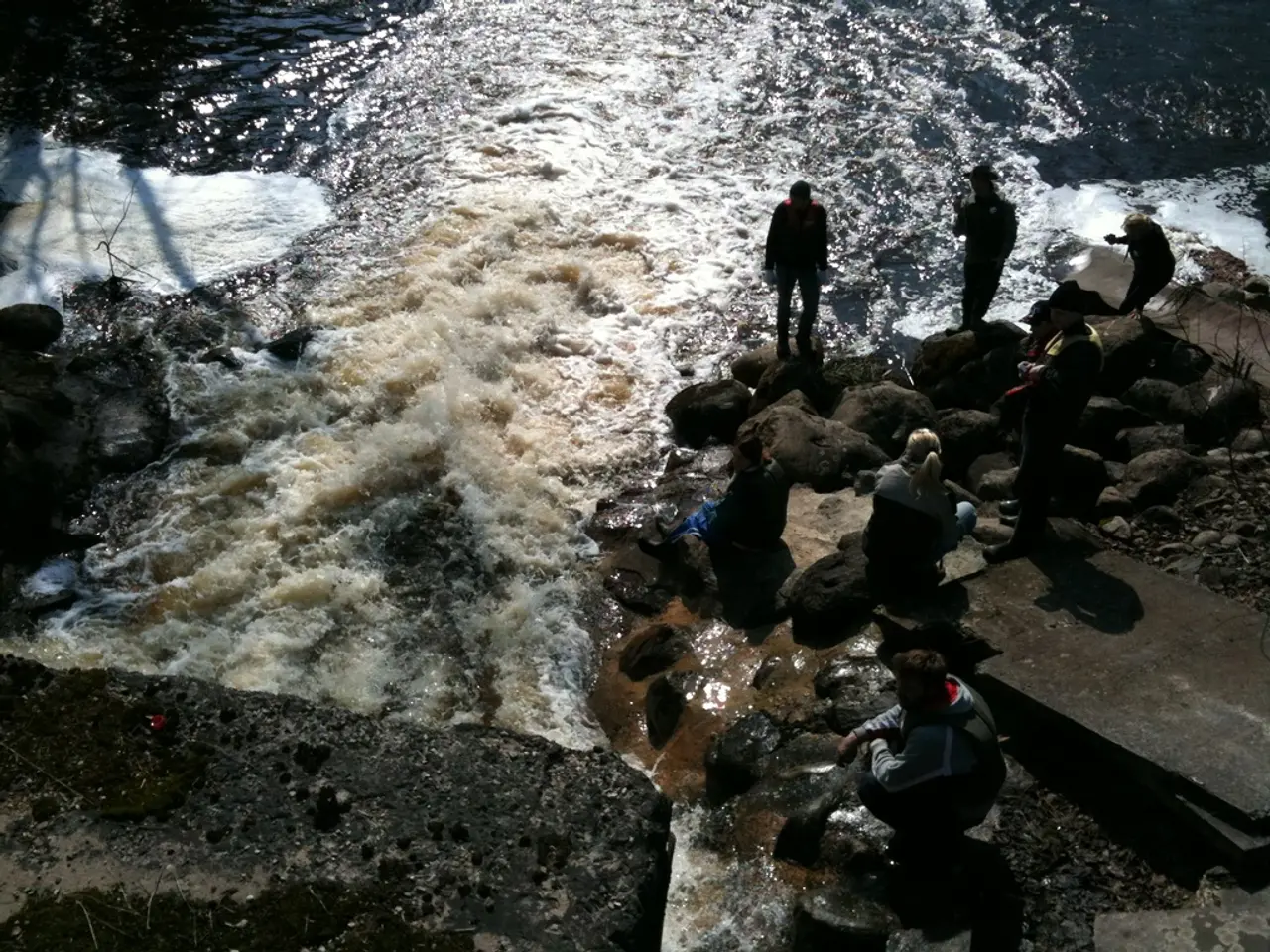Alert for High Temperatures in Starved Rock region
**Heat Advisory in Effect: Taking Necessary Precautions Amidst Severe Heat Wave**
As temperatures soar and humidity levels rise, a heat advisory has been issued with peak afternoon heat-index values reaching an alarming 110°F. This weather condition, potentially dangerous for all, particularly vulnerable groups such as children, older adults, pregnant people, outdoor workers, athletes, and those with chronic health conditions, calls for immediate action.
**Staying Hydrated and Cool**
The most effective precautions involve both individual actions and community support. For personal safety, it is crucial to stay hydrated, drinking water regularly, even if you do not feel thirsty, as dehydration can develop quickly in extreme heat. Aim for water intake every 15–30 minutes when outdoors.
Avoiding outdoor activity during peak heat hours (typically 10 a.m. to 4 p.m.) when temperatures and heat index are highest is also advisable. When venturing outdoors, opt for lightweight, loose-fitting, and light-colored clothing to help your body stay cool. A wide-brimmed hat can also provide additional protection.
Seeking cool environments is equally important. Use air conditioning when possible, and if you do not have air conditioning at home, spend time in public places that are cool, such as libraries, malls, or designated cooling centers. Regularly check on older adults, children, those with chronic illnesses, and others at higher risk to ensure they are staying cool and hydrated.
**Community and Emergency Measures**
Recognizing heat illness symptoms is essential. Be alert for signs of heat exhaustion (heavy sweating, weakness, dizziness, nausea) and heat stroke (confusion, loss of consciousness, hot, dry skin). Heat stroke is a medical emergency—call 911 immediately if suspected.
Follow local guidance and pay attention to official heat advisories and emergency alerts, which may provide location-specific advice or open public cooling centers. Limit alcohol and caffeine, as these substances can contribute to dehydration.
**Special Considerations for High-Risk Groups**
Older adults and people with chronic illnesses are more susceptible to heat-related illness and should be especially cautious, even on days with moderate heat. Outdoor workers and athletes should take frequent breaks in the shade or a cool environment, and wear appropriate protective gear. Community outreach and support are essential to help those without air conditioning or who cannot reach cooling centers.
**Community Resources**
City cooling centers have been set up for public comfort and safety. Checking on neighbors and relatives is encouraged during the heat advisory. It is recommended to drink plenty of fluids during the heat advisory, and staying inside air-conditioned spaces is advisable.
The heat advisory will remain in effect through Thursday, and the weather for the next few months is predicted to be extremely hot and humid. In about six months, the weather may be recalled with a positive sentiment, as people reminisce about the challenging, yet endured, summer days.
Taking these precautions can help prevent heat-related emergencies and save lives. Stay informed, stay safe, and stay cool.
- Embracing disciplines such as environmental-science could provide crucial insights into reducing the impact of severe heatwaves on our communities, offering long-term solutions to combat rising temperatures in the future.
- Fitness-and-exercise routines can be a valuable addition to one's health-and-wellness regimen during cooler parts of the day, strengthening the body's ability to manage heat more effectively, making it easier to cope with the challenges of hot weather.




